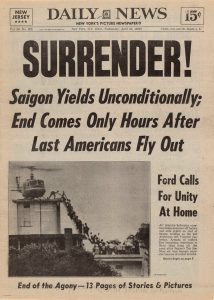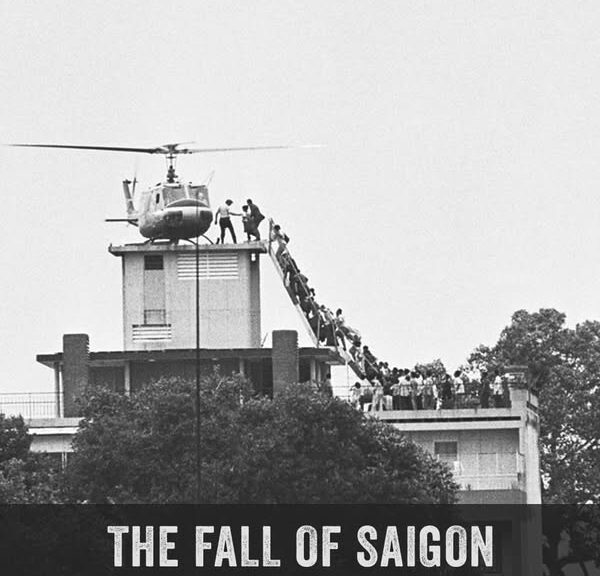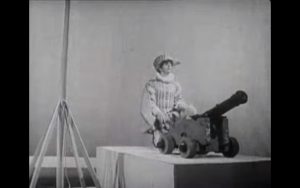Saigon Vietnam Falls
April 30, 1975
 CBS News report of the Fall of Saigon
CBS News report of the Fall of Saigon
Saigon Vietnam Falls
A lifetime of war
For some, the Vietnam War had been their entire lifetime. For far too many, the war was the end of their life.
If you were born in the late 50s or early 60s, by 1975 you were a teenager who’d heard about Vietnam as long as you could remember. Perhaps you knew a friend or neighbor whose name would one day be on the Wall in Washington, DC.
Few understood even in 1975 that Vietnam had been a French colony promised independence after World War II; that the French had reneged on that promise and how on September 2, 1945 Ho Chi Minh had declared Vietnam’s independence.
The first lines of his speech repeated verbatim the second paragraph of our own Declaration of Independence. (see History matters site)
Saigon Vietnam Falls
Gulf of Tonkin
The Gulf of Tonkin may have been the first time we heard the word “Vietnam” when our President Lyndon B Johnson stated that the North Vietnamese had deliberately attacked our ships. It turned out that there was no attack, but given the momentum of anti-Communist fervor and our belief in the Domino Theory, we acquiesced and approved the escalation of our participation.
Saigon Vietnam Falls
Broken promises
Johnson left office because of the war.
Richard Nixon promised he’d end the war. He did, but only after escalating the war and invading Cambodia in 1970. American college campuses erupted in protest. The Ohio National Guard shot and killed four students at Kent State University. 11 days later, police killed two students at Mississippi’s Jackson State.
Saigon Vietnam Falls
Reluctant removal
Finally, on January 23, 1973, Nixon announced that the US and North Vietnam had reached an accord to end the Vietnam War. Later that year, the Nobel committee award the Peace Prize to Henry Kissinger, our chief negotiator, and North Vietnam’s Le Duc Tho. Tho refused the honor. Though the war may have ended for Americans, it hadn’t for the Vietnamese. American aid dwindled and later in 1973 the North and South resumed fighting. In January 1974, South Vietnam’s President Thieu declared the accords no longer in effect.
North Vietnam forces advanced south, and by the spring of 1975 were nearing Saigon, the South Vietnamese capital.
Saigon Vietnam Falls
A Ford at the end
April 1975. The Watergate Scandal had destroyed Nixon’s presidency. He was gone. President Nguyễn Văn Thiệu asked President Gerald Ford for more financing. We turned down the request. On April 21, Thieu resigned and gave a speech accusing the United States of betraying South Vietnam and Kissinger for signing a treaty that brought about his country’s defeat.
North Vietnamese troops overran Saigon on April 30, forcing South Vietnam to surrender and bring about an end to the war. (see NYT article]
Related link >>> Fall of Saigon






